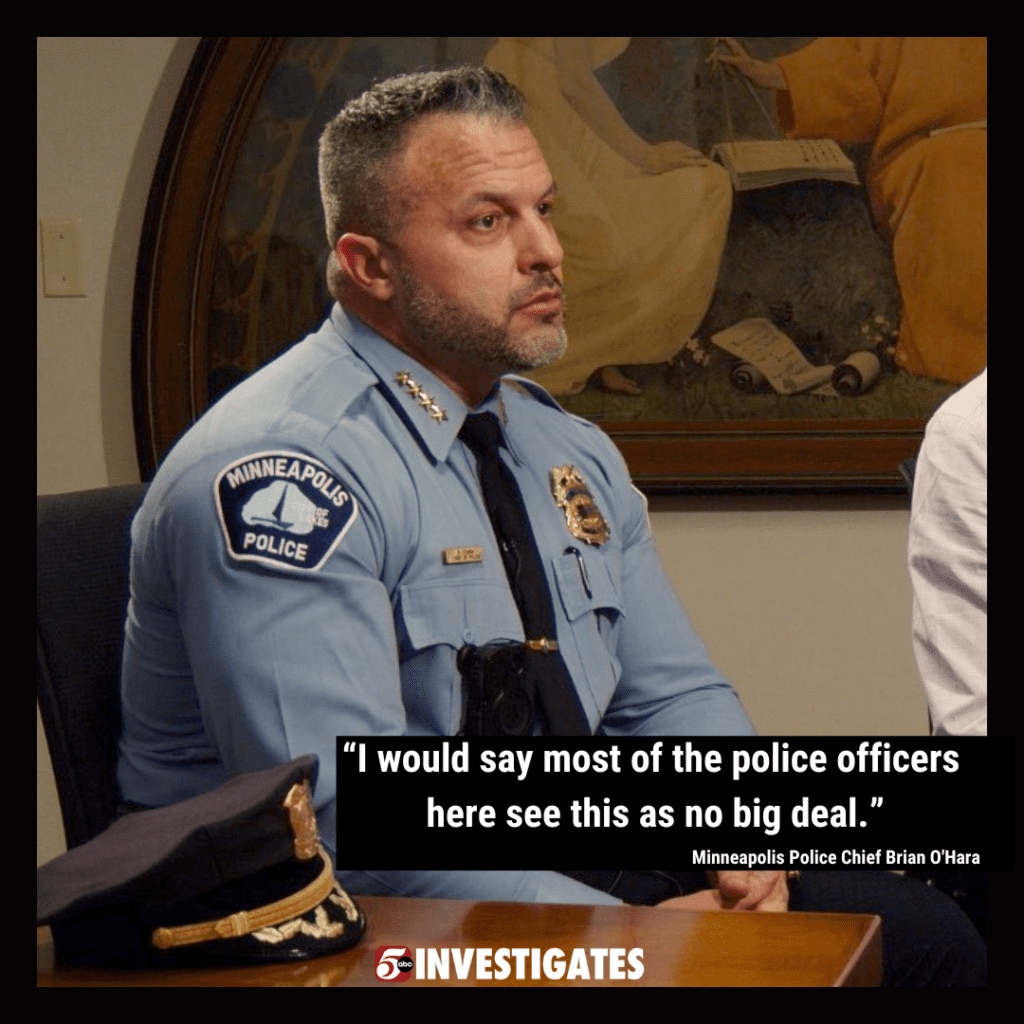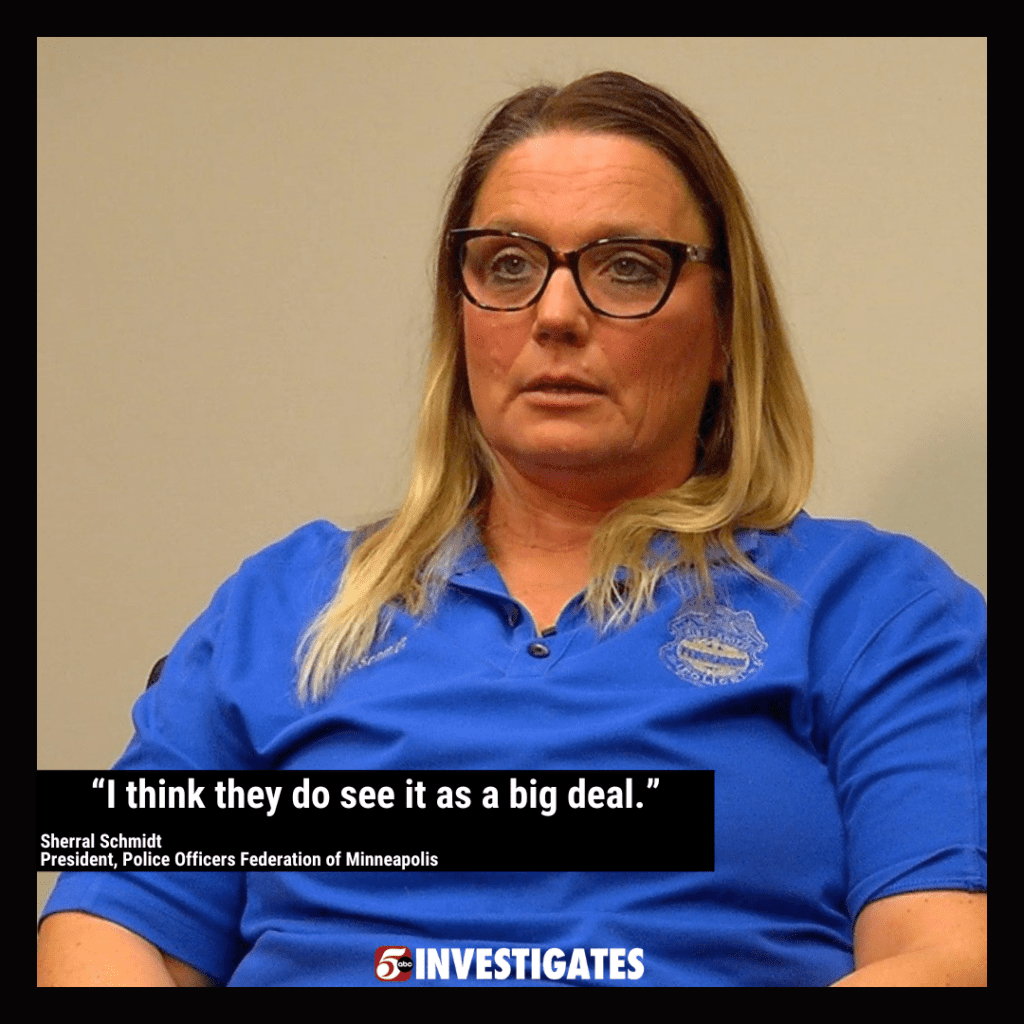Minneapolis Police will be under court supervision for years. DOJ may be watching for a decade.
The Minneapolis Police Department will be under court supervision for at least several years as part of a recent settlement agreement over its pattern and practice of race discrimination.
But the reform efforts negotiated earlier this year with the state are only a precursor to the oversight anticipated from the federal government that could last as long as a decade.
A 5 INVESTIGATES review of consent decrees in a dozen other cities, as well as interviews with police and legal experts across the country, reveal a long and challenging road ahead for MPD.
In Minneapolis, the new police chief and mayor are confident officers are already buying into the court-ordered reforms.

But in her first interview since the settlement was announced earlier this spring, the head of the police union is pushing back on unrealistic timelines for a weary force struggling to keep officers.
“The morale is so low right now that it’s really hard for [the officers] to see how any of this is going to make a difference, or make things better,” said Sherral Schmidt, president of the Police Officers Federation of Minneapolis.
Schmidt said it would be a “logistical nightmare” to put officers through all the additional training that will be required as part of the settlement with the Minnesota Department of Human Rights.
“Not at Day Zero yet”
The U.S. Department of Justice also launched its own investigation into the department in 2021. That investigation is expected to result in a federal consent decree.
Similar to the state settlement agreement, a consent decree mandates specific reforms that are overseen by a federal judge.
Currently, the DOJ is enforcing 12 consent decrees in different police departments across the country. An analysis of DOJ data by 5 INVESTIGATES found those mandates last an average of nine and a half years before the oversight is lifted.
“We’re still not at Day Zero yet,” Minneapolis Police Chief Brian O’Hara said in a recent interview.
The requirements in consent decrees go deep into the organizational structure and culture of a police department, said Dr. Antonio Oftelie, the federal monitor for the Seattle Police Department.
“These types of consent decrees can last a long time,” he said. “Sometimes you’ll find that police departments will make some good progress initially, and then they’ll kind of take their foot off the gas a little bit. And then they’ll go backwards.”
Oftelie, who was born and raised in Minneapolis, was appointed as the monitor in 2020. This spring, after 12 years, the DOJ asked the federal court to end the oversight, arguing that the city has sustained reforms it was bound to follow.
Achieving that stage, Oftelie said, requires commitment from both leaders in a city and the officers on the streets.
“No big deal”
O’Hara was hired last year because of his experience navigating the federal consent decree with the Newark Police Department. In New Jersey, he said even captains and lieutenants argued against some of the reforms.
“I have not seen here the level of resistance that I saw in Newark, at all,” O’Hara told 5 INVESTIGATES. “I would say most of the police officers here see this as no big deal.”

But Schmidt, the union president, disagrees with the chief’s perception.
“I think they do see it as a big deal,” she said. “There are some real concerns from the cops that are out there doing this work every day.”
Seven-year struggle
In 2021, 5 INVESTIGATES showed how police in Albuquerque, New Mexico still struggled to comply with a federal consent decree after more than seven years.
Current and former police chiefs there blamed resistance within the ranks, while the police union said the oversight led to a massive reduction in the number of officers on the force.
When asked how he plans to manage conflict throughout the process, Mayor Frey said he’d rely on O’Hara.
“We brought in someone that has had experience managing it before, in the chief,” Frey said during an interview earlier this month. “He’s dealt with this before.”
O’Hara stressed the reforms are intended to support officers while working toward building trust with the communities they serve.
“What’s most important for me is ensuring that our community, the people in the street, feel that there’s something different about the police department,” he said.